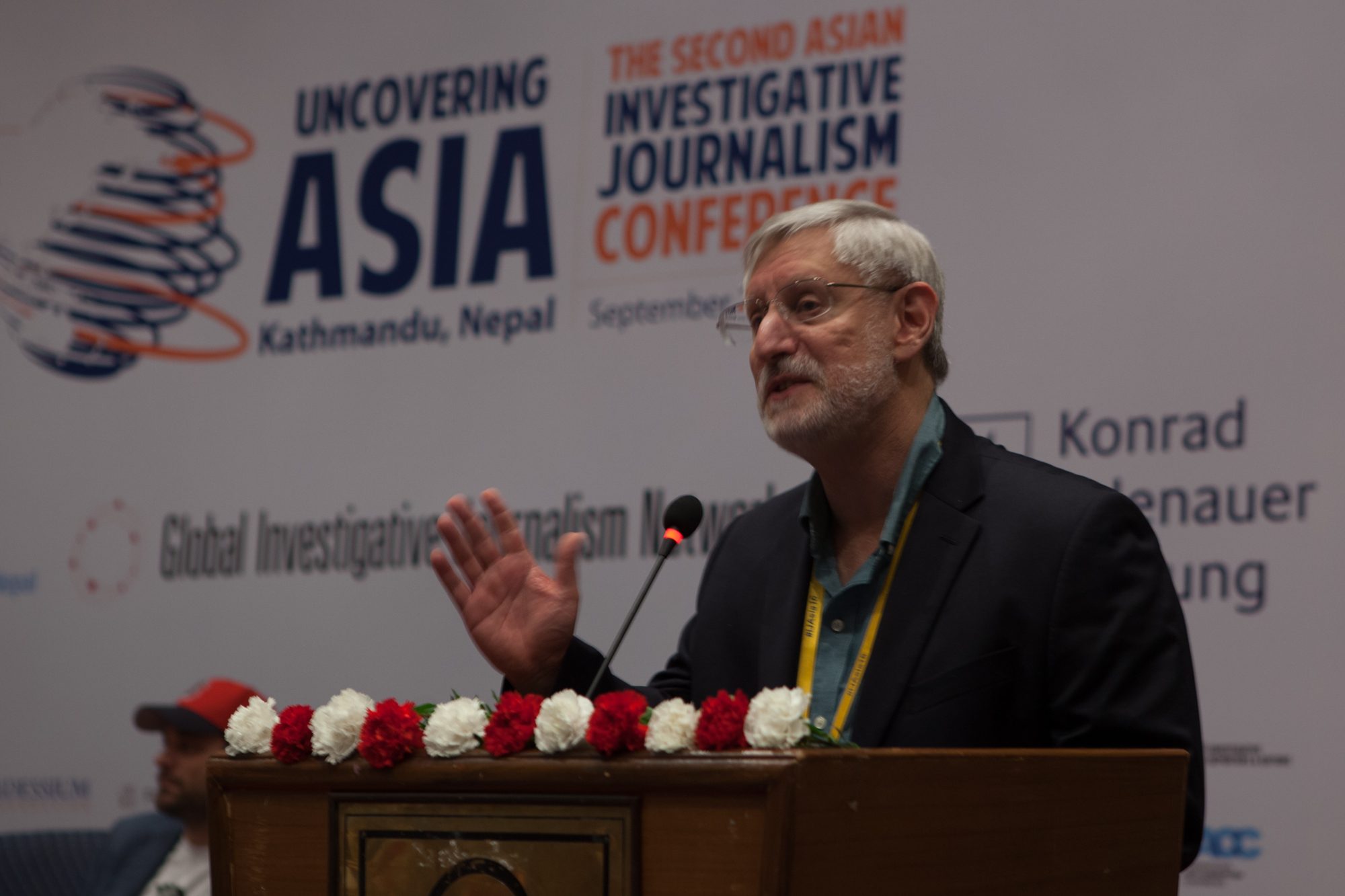SUMMARY
This is AI generated summarization, which may have errors. For context, always refer to the full article.

KATHMANDU, Nepal – Close to 400 journalists from 50 countries on Friday, September 23, began the 2nd Asian Investigative Journalism conference here with 2 key ideas: it’s the age of collaboration – even with competitors – and of massive information leaks.
The first plenary session featured Asian journalists who worked on the Panama Papers, history’s biggest leak of documents exposing offshore accounts that has forced the resignation of Iceland’s prime minister, triggered investigations in some countries, and compelled tax disclosures in others.
“The Panama Papers is not only the biggest leak, it is also the biggest collaboration in journalism history,” said Sheila Coronel, academic dean of the Columbia School of Journalism, as she introduced the Panama Papers team from Asia.
The cross-border investigative project, first published in April 2016, is the best example of “doing networked journalism in an interconnected word,” she added. And journalists should do more of this in the future, Coronel said.
Technology, trust
The Panama Papers team shared one of the best lessons from their year-long sleuthing: that through technology, competitive journalists can work together for a huge public interest project.
The 11.5 million files from the Panamanian Mossack Fonseca law firm, leaked by an anonymous source to a German newspaper, were shared by the International Consortium of Investigative Journalism (ICIJ) with its network of journalists across the world, including Pakistan’s The News, the Indian Express, Japan’s Kyodo News Service and Asahi Shimbun, and Indonesia’s Tempo. (WATCH: The Panama Papers: An introduction)
“Without technology, there would be no Panama Papers,” said Mar Cabra, data and research head of ICIJ. “But technology was just the beginning. Everything we did was fuelled by trust.”
The project involved more than 100 media organizations, whose journalists and researchers worked for a year on a single platform – called Blacklight – where they pored over millions of files, matched these data with names, mapped these networks, and connected with a private Facebook page where other forms of collaboration were done by the Panama Papers team. (Check the leaked data here)
It was a discipline of “radical sharing,” Cabra said.
Kyodo’s Yasuomi Sawa recalled how he found himself constantly coordinating and sharing tips with his competitor, a journalist from the Asahi Shimbun newspaper. “As journalists, we have been hiding things from each other for a long time. It was strange to find myself talking to him all the time,” Sawa said.
What does this mean for investigative journalists?
Three things, Cabra said. Global, massive information leaks is the “new normal;” collaboration is the way to deal with them; and data journalism is here to stay – and is key to more effective investigations.
Problems for media
The Panama Papers project has triggered investigations and caused policy change in some countries.
In Pakistan, for example, tax information involving government officials has been made public, according to Coronel. The leak also made Pakistanis more aware of offshore accounts as a vehicle to stash away hidden wealth or evade taxes, or both.
But it has also caused some problems for media organizations that pursued it.
Pakistan’s top investigative journalist, Umar Cheema of The News, recalled that some of his newspaper’s biggest advertisers boycotted the paper after their names were published as among the holders of offshore accounts. The politicians named in the leak were not the problem, he said. It was the advertisers.
In Indonesia, soon after Tempo and other media organizations published the names of Indonesians with offshore accounts, the government used this as basis to declare a tax amnesty for Indonesians with accounts abroad, according to Wahyu Dhymatmika.
“A new law pardoned everyone who declared their wealth overseas – as long as they returned 2% of that to government,” he said. “It was clever,” Wahyu added.

Aside from the Panama Papers team, hundreds of investigative reporters, newsroom managers, and data scientists in 50 countries are gathered here – Nepal’s biggest event for journalists – for Uncovering Asia: The 2nd Asian Investigative Journalism Conference (Watch the sessions here). The first one was held in Manila in 2014.
Manila and Kathmandu, after all, share the same journalism heritage, said David Kaplan, head of the Global Investigative Journalism Network (GIJN) in his welcome remarks. Both countries have the oldest invesigative journalism centers in Asia.
“Asia was long the weak link in global network of investigative journalism,” Kaplan said.”I don’t think we can say that anymore.”
But problems persist.
Namrata Sharma, head of Nepal’s Center for Investigative Journalism, said her media colleagues here continue to encounter problems – from harassment to “unseen censorship.”
Sharma cited the case of Himal Southasian, a review magazine of politics and culture in South Asia, which was suspended in August 2016 by the Nepal government ostensibly for violations of regulatory rules. – Rappler.com
Add a comment
How does this make you feel?
There are no comments yet. Add your comment to start the conversation.